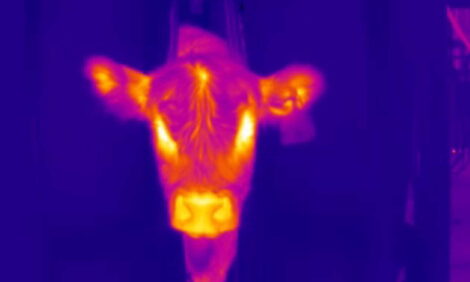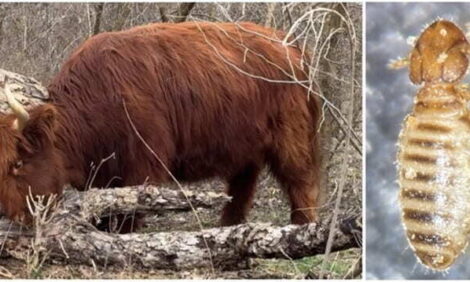



Türkiye’s successful fight against FMD
Türkiye is only one of seven countries that produces its own FMD vaccineEditor's note: The following is part of an edited version of a report by the World Organization for Animal Health (WOAH), in The State of the World’s Animal Health 20251
In 2023, the Republic of Türkiye responded swiftly to a major threat to its livestock sector: the SAT-2 serotype of foot and mouth disease (FMD). First detected in eastern Türkiye in March, the SAT-2 serotype posed a significant risk after spreading in neighboring countries earlier that year.
Recognizing the danger, Türkiye’s Ministry of Agriculture and Forestry acted quickly, working with World Organization for Animal Health (WOAH) and the European Union (EU). Dr Ahmet Gümen, Türkiye’s WOAH delegate, said the country’s readiness came from its experience in an FMD-prone region.
“We’ve developed strong expertise in early detection and rapid response,” he noted.
Preparations had already begun by January 2023, when Türkiye’s National Disease Control Centre started coordinating with other institutions using insights from the Risk-Based Control Program, active since 2014. Planning focused on surveillance, crisis communication and logistics. One of the main priorities was to secure the SAT-2 strain from affected neighbors to include it in local vaccines. This was achieved through international cooperation under WOAH and Food and Agriculture Organization of the United Nations (FAO).
“We detected the SAT-2 threat before it reached us,” said Dr Gümen.
Türkiye is one of only seven countries globally that produces its own FMD vaccine. Although the SAT-2 strain had not yet been included in vaccines at the start of 2023, samples were obtained from Iraq on 25 January and confirmed on 2 February.
Thanks to rapid coordination, by 28 February the national Foot and Mouth Disease Institute had produced a vaccine containing the SAT-2 strain, just 37 days after confirmation. An additional 497,500 doses were secured from the EU vaccine bank. High-risk areas were prioritized, with EU supplied vaccines used in Thrace, an FMD-free zone in the west, where 800,000 sheep and cattle were vaccinated to preserve this status.
A nationwide effort followed. With over 9,000 veterinarians deployed across the country, Türkiye managed to vaccinate 14.2 million cattle – 90% of the national herd – and 2.5 million sheep by the end of August. Despite the logistical difficulties of reaching remote and mountainous areas, mobile units and portable cold storage ensured vaccine delivery. Temporary staff were added where needed to support the workload.
First-ever movement halt
In a historic move, Türkiye implemented its first-ever nationwide standstill policy, halting all animal movements. While some resistance was expected, the policy was widely accepted thanks to transparent communication with farmers and stakeholders. The movement restrictions were enforced through national databases and checkpoints supported by security forces.
At the same time, veterinarians were tasked with educating the public about FMD, biosecurity and quarantine protocols. Public–private partnerships were instrumental. Large farms supported early detection through their in-house veterinarians, while freelance vets extended coverage in under-resourced areas.
Türkiye maintained biannual vaccinations to sustain control of the virus. In autumn 2023, 13.7 million cattle and 500,000 sheep were vaccinated within just 2.5 months. An interim round between autumn and spring 2024 increased protection further, with 13 million cattle vaccinated three times since the beginning of the outbreak. As a result, the number of outbreaks dropped by 70% – from 350 to 104.
To support these efforts and better monitor animal movements, Türkiye established veterinary road control and inspection stations. The first in September 2023, and by early 2025 four more were operational. These stations are staffed by veterinarians around the clock who conduct health inspections, issue fines or enforce slaughter where necessary.
“These stations are essential to preventing the spread of FMD and other diseases,” said Dr Gümen.
Looking ahead, Türkiye plans to expand the Foot and Mouth Disease Institute’s production capacity to meet both national demand and support nearby countries like Azerbaijan.
“With continued commitment, we aim to eradicate FMD in Türkiye,” concluded Dr Gümen.
References
1 - World Organization for Animal Health (2025). – The State of the World’s Animal Health 2025. Paris, 120pp. https://doi.org/10.20506/woah..... License: CC BY-SA 3.0 IGO.



